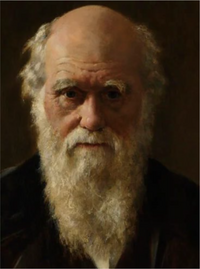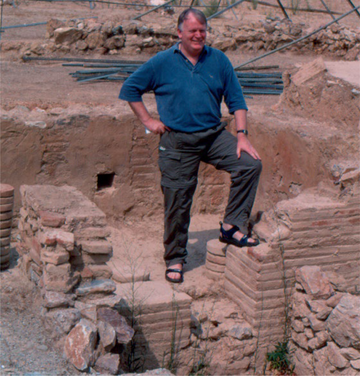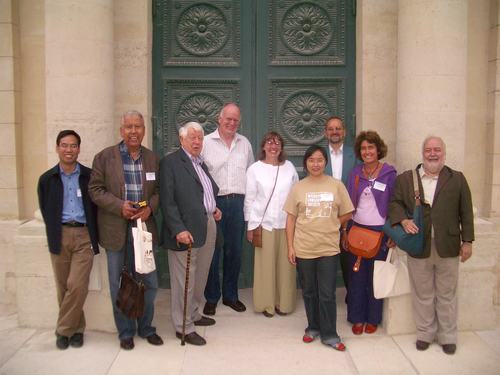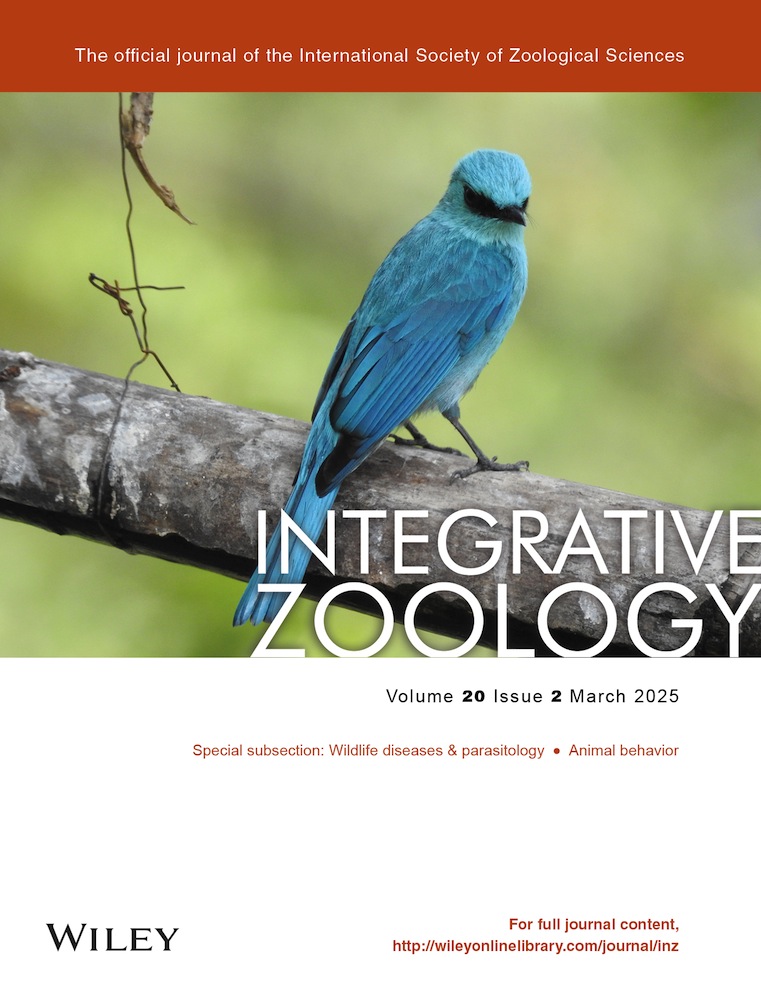The Incarnation of Zoology in the 21st Century as an International Scientific Discipline
Advisory Committee (AC) Chair, ISZS; President Emeritus, ISZS
Graphical Abstract
This essay was originally prepared for a special commemorative volume to celebrate the International Zoological Congress (established 135 years ago) and the International Society of Zoological Sciences (ISZS, established 20 years ago). These two institutions underpin international cooperation and promote excellence in zoological research without which the science of zoology would be very much the poorer.
As the President Emeritus of ISZS, I am delighted to congratulate the International Congress of Zoology (ICZ) upon reaching its 135th anniversary and to celebrate the 20th anniversary of the ISZS. I sincerely wish both the Congress and the Society a bright future.

Charles Darwin 1881.
Aquatint by G. Sidney Hunt after the painting by John Collier.
National Portrait Gallery, London
In 1889, exactly 30 years after Darwin's Origin of Species was published, the ICZ (Congrès International de Zoologie) held its first meeting in Paris, France. Darwin's theory of evolution had revolutionized thinking in biology and, in doing so, provided a newly energized impetus to develop theories to explain the nature, relationships, and distribution of animals. Not surprisingly, a prime purpose of the first zoological congress was to establish an international forum at which new zoological theories could be discussed, debated, and hopefully endorsed. The first ICZ was an astounding success, and thus began a series of meetings, to be held every 3 years.
The ICZ was not the first international scientific conference—the earliest recognized was in 1798—also in Paris, at which the idiosyncrasies (or otherwise) of the metric system of measurement were evaluated. However, at this meeting, attendees were invited and formally represented their own countries. Most of the scientific meetings in the early 19th century were similarly designed to resolve specific problems of the time, such as the combating of cholera (1851).
The 1889 ICZ was one of the first international conferences that had a broad interest base, and at which individual attendees more often represented their science, as opposed to their country. A key feature of the ICZ was to formalize the status of the International Commission of Zoological Nomenclature (ICZN). The outcome of this was a workable taxonomic system that permitted the advancement of biological sciences globally. Over the next half-century, ICZ meetings provided opportunities to celebrate and discuss new discoveries, such as the role of DNA in living organisms. However, due to a lack of enthusiasm to host future congresses, 1972 marked the end of what had been a successful era of meetings. It would be almost three decades before the resurrection of an ICZ.
In August 2000, I attended the XVIII (New) International Congress on Zoology, which was held in Athens, Greece. I presented a paper on Aristotle's contribution to zoology and was appointed to the International Congress Committee, of which in 2001, I became chair. The committee had two primary purposes: to ensure that the next IZC meeting would be held in 2004 and to evaluate the potential for the congress to become an International Society of Zoological Sciences.
Athens was a fortuitous venue for the re-establishment of the ICZ, for it had been the home of Aristotle, the earliest and arguably the greatest thinker to truly integrate other sciences within zoology. Aristotle saw a continuum between the inorganic and the organic—and incorporated this into his Scala Naturae (ladder of nature). Aristotle grouped animals based on the characteristics that they possessed, and in this sense, his ideas were a precursor to systematic taxonomy. Unlike today's biologists, however, he was focused on the causes of observed phenomena: His scale showed increasing “movements” as one moved from rocks (at the bottom) to humans (at the top).
In retrospect, I must have been somewhat foolhardy to present a paper on Aristotle at a meeting in Athens, but it was warmly received by our Greek hosts, and I was invited to visit the newly discovered remains of Aristotle's Lyceum… a truly wonderful experience.
The success of the Athens meeting showed that there was, once more, a need for ICZs. This need was driven by a widespread desire to coordinate global responses to global problems, one of the most obvious being the loss of all too many species due to humanity's impact on the biosphere.
Not surprisingly, the two primary tasks that the newly elected ICZ Executive Committee set itself were to ensure that there was a 19th ICZ and to evaluate the potential for an international society for zoologists. This involved two phases: the first being to submit a proposal to the International Union of Biological Sciences (IUBS) for endorsement of the proposal for an international zoological society and the second being to finalize a venue for the next ICZ.
2004 was the year in which international zoology gained momentum: In January, IUBS endorsed the establishment of the ISZS, and in August, China hosted the first ISZS meeting, with the ISZS Secretariat being established in Beijing. Our journey had begun.

JB in 2000 at the newly discovered remains of Aristotle's Lyceum.
One of the first tasks of ISZS was an evaluation of the need for a scientific journal through which the issues facing zoologists could be articulated. Prime among these issues was a need to report, understand, and respond to the rapid environmental changes that were occurring globally. The ISZS was quick to set up international think tanks with associated workshops, like its Biological Consequences of Global Change—which is designed to help mitigate environmental degradation. It was quickly recognized that responding to these problems would best be achieved if a broad zoological focus was pursued. Thus, a new journal, to show that zoology did not exist in isolation, was born—Integrative Zoology, the flagship of ISZS.
Like all new scientific journals, Integrative Zoology began its life with no impact factor. To gain an impact factor, widespread scientific support was needed from the society. Special issues, targeting frontier science and global needs, have been regularly organized, thanks to the contribution of many guest editors and the editorial staff. It is remarkable that in a very short period, Integrative Zoology has risen through the ranks of biological journals to become one of the top journals in zoology, and in 2023, it has a Scopus CiteScore of 6.4 and a Clarivate Impact Score of 3.5. This achievement has been attained through the submission of inspired, innovative manuscripts, the dedication of a diverse editorial team, and the support of Wiley Publishers in conjunction with the Chinese Academy of Science.
It is with pride that we can reflect on the last 135 years—and in particular, upon the last 20 years, when a reinvigorated approach to solving the biological consequences of environmental changes has become not just a concept, but an actuality.





